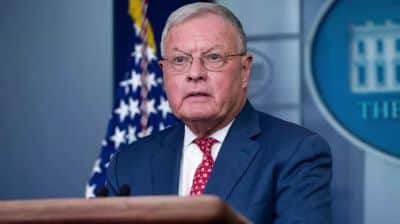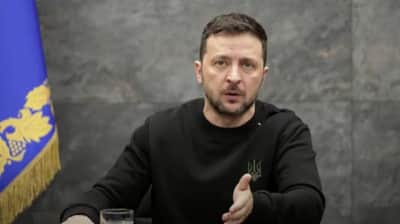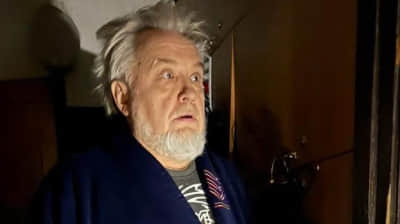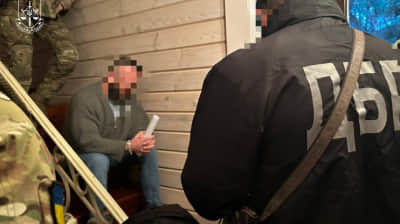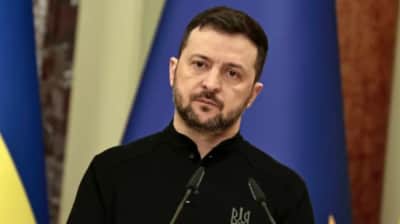Russian troops to focus on capturing Ukrainian frontline cities in winter
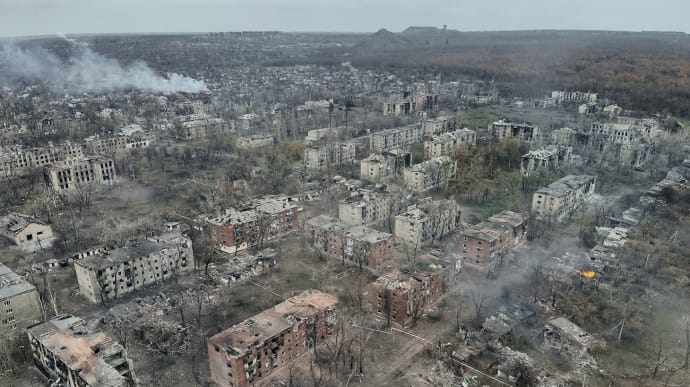
Experts at the Institute for the Study of War (ISW) believe that Russian troops are likely to focus on capturing Ukrainian frontline cities in the winter of 2024-2025 and on urban battles, trying to offset the advantages of Ukrainian drones and possible limitations of Russian armoured vehicles.
Source: ISW
Details: Mikhail Zvinchuk, the Kremlin-recognised founder and director of the influential Rybar Telegram channel and social media project, stated in an interview with the Russian-language diaspora channel RTVI on 16 November that Russian forces intend to focus fighting in "populated areas and not in open fields" this winter.
He claimed that Toretsk, Pokrovsk, and Kurakhove are towns where Russia plans to prioritise advances this winter. Zvinchuk noted that Russian forces are preparing to assault Pokrovsk and will approach it from the south and southeast, following their capture of Selydove (southeast of Pokrovsk).
As a notable figure in the Russian information space with Kremlin connections, Zvinchuk may have insider knowledge of Russia’s frontline objectives and strategy.
Quote: "Russian forces have recently made advances into eastern Kupiansk and central Chasiv Yar, and such advances may be part of a concerted effort to advance into frontline cities in preparation for offensive operations in Winter 2024-2025."
The ISW has previously assessed that capturing Kupiansk or Chasiv Yar would significantly reshape the frontline, jeopardising key Ukrainian defensive positions. While these advances increase the pressure on Ukrainian defences, they do not pose an immediate threat.
Zvinchuk also emphasised that Russian forces aim to enhance their combat capabilities during this winter, particularly their drone capabilities, given the critical role of the "drone war" in winter warfare.
He acknowledged Russia’s artillery advantage but admitted that Ukrainian drone operations currently prevent significant advances. He suggested that better-trained and better-equipped Russian forces might counter Ukrainian drone operators more effectively.
ISW has previously noted efforts by the Russian Ministry of Defence (MoD) to centralise control over informal Russian drone units. Zvinchuk’s remarks likely allude to this initiative, hinting that the MoD may intensify these efforts in the winter.
ISW has also observed that Ukrainian drones continue to constrain Russian mechanised manoeuvres, preventing them from fully exploiting Ukraine’s challenges with manpower and resources.
The Russian military command might favour urban combat for its infantry-led strategy, as multi-storey buildings provide better cover from Ukrainian drones compared to open terrain. Urban engagements may also reduce the strain on Russian armoured vehicle reserves, which are more vulnerable in prolonged rural field operations.
To quote the ISW’s Key Takeaways on 17 November:
- The New York Time* (NYT) and Washington Post reported that US President Joe Biden has authorised Ukrainian forces to use US-provided ATACMS in limited strikes against Russian and North Korean military targets within Kursk Oblast.
- Russian forces damaged Ukrainian energy infrastructure during the largest missile and drone strike since August 2024 on the night of 16-17 November.
- Russian forces continue to innovate their long-range strike packages and likely included relatively ineffective sea-launched Kalibr cruise missiles in the 16-17 November strike package as decoys to distract and exhaust Ukrainian air defences.
- Ukrainian forces struck a defence industrial factory in the Udmurt Republic for the first time on the morning of 17 November.
- North Korea reportedly continues to provide military support to Russia, including the provision of rocket and artillery systems and potential additional troop deployments, which is likely to impact Russia's military operations in the short term, but its long-term benefits likely remain limited.
- Russian forces will likely focus on seizing frontline Ukrainian towns and cities during Winter 2024–25 through urban combat amid efforts to offset Ukrainian drone advantages and possible Russian armoured vehicle constraints.
- Russian leader Vladimir Putin's maximalist objectives demanding full Ukrainian capitulation remain unchanged, but a prominent Kremlin-affiliated milblogger appears to be trying to repackage longstanding Kremlin territorial claims to southern Ukraine as less severe "peace proposals" that would actually militarily threaten Ukraine, Moldova, and NATO.
- Abkhazian oppositionists continued protests on 17 November calling for the resignation of the de facto Abkhazian President Aslan Bzhania.
- Russian forces recently advanced near Kupiansk, Chasiv Yar, Kurakhove and Vuhledar.
- Russian milbloggers continued to applaud their reported role in removing frontline 3rd Combined Arms Army (CAA, formerly 2nd Luhansk People's Republic Army Corps [LNR AC]) commanders after the commanders submitted false reports about Russian advances on the Siversk front.
Support UP or become our patron!
